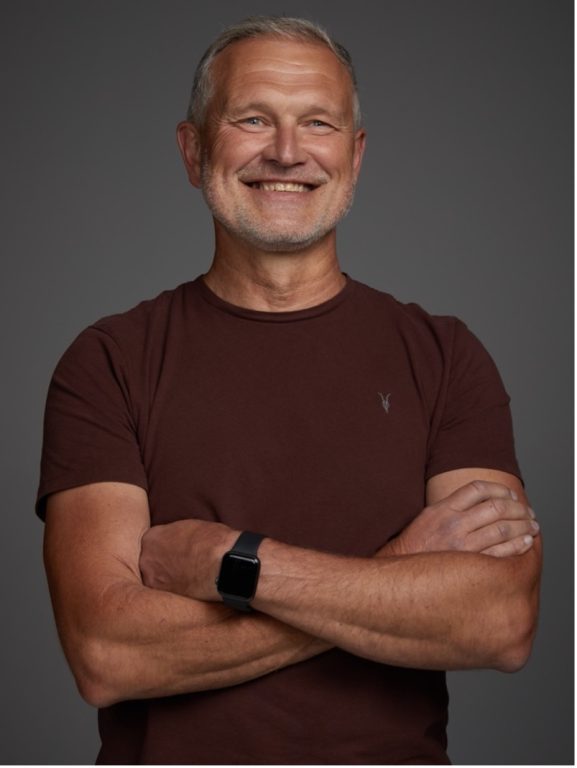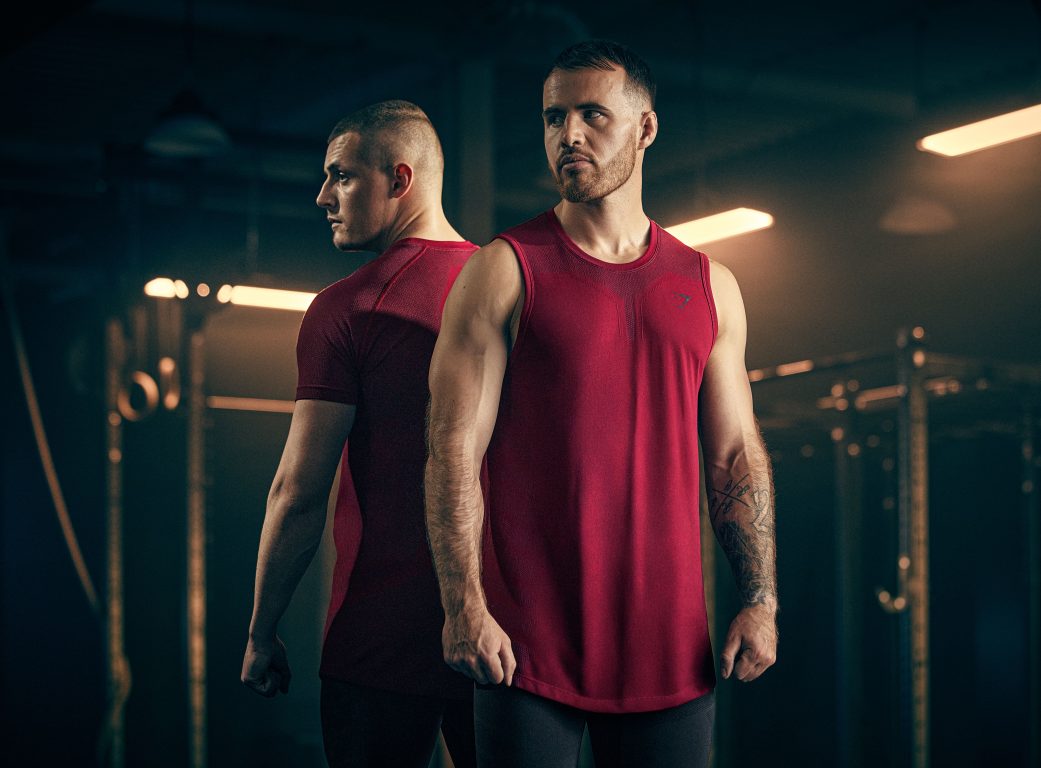How Gymshark doubled its workforce during COVID-19
The tech fitness brand’s CPO Dave Parry shares all with UNLEASH.
Why You Should Care
Gymshark is now a fitness and tech unicorn.
In addition to being worth over $1 billion, the company has doubled its headcount in the pandemic.
What does the future of work look like for Gymshark?
2012 was a big year for sport. Not only was it the year that London hosted the Olympics for the first time since the 1940s, but it was when 19-year-old Ben Francis founded fitness wear brand Gymshark in his parent’s garage in the West Midlands.
Fast forward nine years later, Gymshark remains headquartered in the Midlands, but is now a globally recognized fitness retailer and tech company worth more than $1 billion. Its turnover has increased tenfold over the past four years to £400 million and it attracted £200 million in financing from General Atlantic in 2020.
It now has a significant presence in the US; Francis told the Financial Times more than half of the company’s sales are in the US and it has around 100 employees in the US now.
To further support Gymshark’s US expansion – particularly around brand awareness– the brand has just brought VaynerMedia CEO’s Gary Vaynerchuk onto its board. Vaynerchuk was an early investor in the likes of Twitter, Tumblr, and Uber.
While there have been rumblings about a possible initial public offering (IPO), Francis tells the Financial Times that Gymshark is talking to other investors and banks.
“I want to know what the opportunities are for Gymshark, what the options are as we continue to grow. [But] right now we’re just focusing on the growth of the business and building out the team,” noted Francis.
Gymshark and the pandemic
This focus on continuing to grow the team comes on the back of Gymshark doubling its headcount during the pandemic to more than 900 employees spread across the world, chief people officer (CPO) Dave Parry tells UNLEASH.

Dave Parry, CPO at Gymshark.
He reflects that in March 2020 that if someone had said Gymshark was going to “continue to grow [its business and headcount] at the same rate during the pandemic, I would have said it wouldn’t happen”.
But when the pandemic struck, “we had the choice to slow and stop the growth trajectory” or adjust to the reality.
“We are a tech and data company anyway”, which Parry notes is something people often don’t realize about Gymshark – “people see us as a leggings and t-shirt brand, but we are so much more than that”.
So Gymshark decided to trial remote working for a week, which “tested our tech, but it was seamless” because all of the company’s employees already worked from laptops anyway.
Then when the pandemic hit, some of Gymshark’s teams – like design, product and property – “never left the office”, while other teams, like the tech team, worked exclusively from home.
Importance of culture at Gymshark
A major concern for Gymshark and its recruitment drive during the pandemic was how to develop culture while everyone is working apart.
When it comes to recruitment and talent, Gymshark is laser-focused on culture, according to Parry.
The company’s HR ethos is “culture first, capability second”. “You need the right skill set, but your character, your attitude, and your conduct matter most”.
Parry explains: “Being good at your job is not enough, you’ve got to be a decent human being”. All employees and their behavior feed into the culture, which Parry acknowledges is always changing and evolving.
“We are not perfect, we don’t get it right all the time. But we are honest about where we are and where we are not; that is a fundamental part of our business as well”. For instance, “in the early days, we talked about culture fit and we realized that’s not appropriate. It is more culture add”, explains Parry.
So, during the pandemic, Gymshark “overemphasized the importance of communication and staying in touch with teams. It did this with the help of Zoom, and Parry notes, it was particularly helpful to keep employees working globally connected during the pandemic.
“There is no silver bullet; it has been a lot of hard work to make sure people stay connected and look after one another,” notes Parry.
Employee benefits at Gymshark
On the topic of looking after one another, Gymshark sees itself as a family; “we succeed together, we fail together”.
Therefore, Parry notes that his team are not called HR; “we are called people for the reason that people’s health and wellbeing are our priorities”.
Gymshark has five pillars of wellbeing – mental, physical, nutritional, financial and social – and see these as not just buzzwords, but to be baked into the company’s culture.
Parry gives the example that all Gymshark employees across the world have access to gyms. In the UK, this is through a partnership with the Lifting Club.
Also, “everyone gets private healthcare wherever they are in the world”, it provides access to coaches on site and a wellbeing app called Unmind that employees can access 24/7.

Credit: Gymshark.
Gymshark also has dedicated internal so-called Healthy Mind Champions who support employees health and wellbeing at work.
Other non-wellbeing focused perks for employees are a 50% discount off Gymshark products and the ability to spend 10% of their working hours on personal development.
Learning and development (L&D) is an important focus for Gymshark, especially since the average age of workforce is under 30.
“We’ve got a program called ‘Be Better Leaders’, [which] has a business angle, but a very personal angle too as we know that people’s needs are different”, explains Parry.
Gymshark also relies on HR tech platform Openblend as its performance management tool. It focuses on key performance metrics, as well as health and wellbeing, and puts the human at the center of the conversations with managers. “Human interaction is key, but it is held together with a tech platform”, comments Parry.
However, Parry is very candid about how Gymshark needs to up its game around upskilling as the company continues to grow. “I think we are quite good at doing the hard stuff, but not so good at doing the simple stuff” – now Gymshark has a team focused on it and is getting the rest of the business to buy into the importance of L&D.
Being an inclusive workplace
A final element of Gymshark’s HR priorities is belonging. “Being inclusive and equitable is a really important part of what we do”, notes Parry.
For Gymshark, this centers around bringing different demographics into the organization.
This starts with not having its headquarters in London, therefore helping to provide good, but local, jobs to people in the West Midlands region.
However, Parry wants to take this even further. He gives the example that he challenged the talent team to figure out how recruit non-university students for its paid internship program.
Usually university is the go-to place to find young talent, “but there are plenty of smart young people who are not in university as well”.
It may be harder to source candidates, but Parry sees it as crucial that “we give the internship opportunity to those form non-traditional backgrounds as well”.
The future of work at Gymshark
The conversation then turned to the future of work. “If I had a pound for everyone time someone asks me ‘what are you doing now?’, I’d be a very wealthy man,” jokes Parry.
But he is clear it is going to be hybrid. The future of work at Gymshark is going to be different for different teams.
“It is not a single hybrid model” that will depend on function, as well as geography.
“It is going to be 12 months or so before anyone gets used to what hybrid working looks like”, states Parry.
In terms of the ‘Great Resignation’, Parry is very candid. “The reality is we will lose some people, but we are seeing this as an opportunity because the ‘Great Resignation’ is driving a lot of people to reassess what is important to them”.
“I think what we have created and are building [at Gymshark] is the type of thing that people want”. Parry notes they want more than just salary, they want “the whole package”, around wellbeing, inclusion, career development opportunities.
Despite this confidence, Parry notes that if Gymshark starts to see its attrition rises above the current 10% level, then the company will look closely at “why, what are we doing, what are we not doing” that is causing that to happen.
“We’re quite agile, so we know if something needs to change then, because we are a relatively new company, we are not wedded into anything, so if it is not working [we can easily switch] to do something differently”, explains Parry.
Gymshark’s view of HR tech
Gymshark is very keen to get regular feedback from employees to “help us understand what the teams need and where our focus needs to be” both now and in the future. To do this, it relies on fortnightly pulse surveys by Officevibe.
The company is not afraid to switch things up with their HR tech for instance. “We are constantly evolving our tech tools” – Parry gives the example that Gymshark moved from its own bespoke applicant tracking system (ATS) system, but now it has moved across to Greenhouse to make sure the candidate experience was up to scratch as the company scaled.
Linked to this, Parry is clear that no one vendor or system can do everything for employers; “if you’re trying for one-size-fits-all, you end up with one-size-doesn’t-fit-well” at all.
“Lots of systems do what they do well” and while currently “we’ve got systems fit for purpose”, “as we get bigger, we might have to change”.
Sign up to the UNLEASH Newsletter
Get the Editor’s picks of the week delivered straight to your inbox!

Chief Reporter, UNLEASH
Allie is an award-winning business journalist and can be reached at alexandra@unleash.ai.
Contact Us
"*" indicates required fields
Partner with UNLEASH
"*" indicates required fields